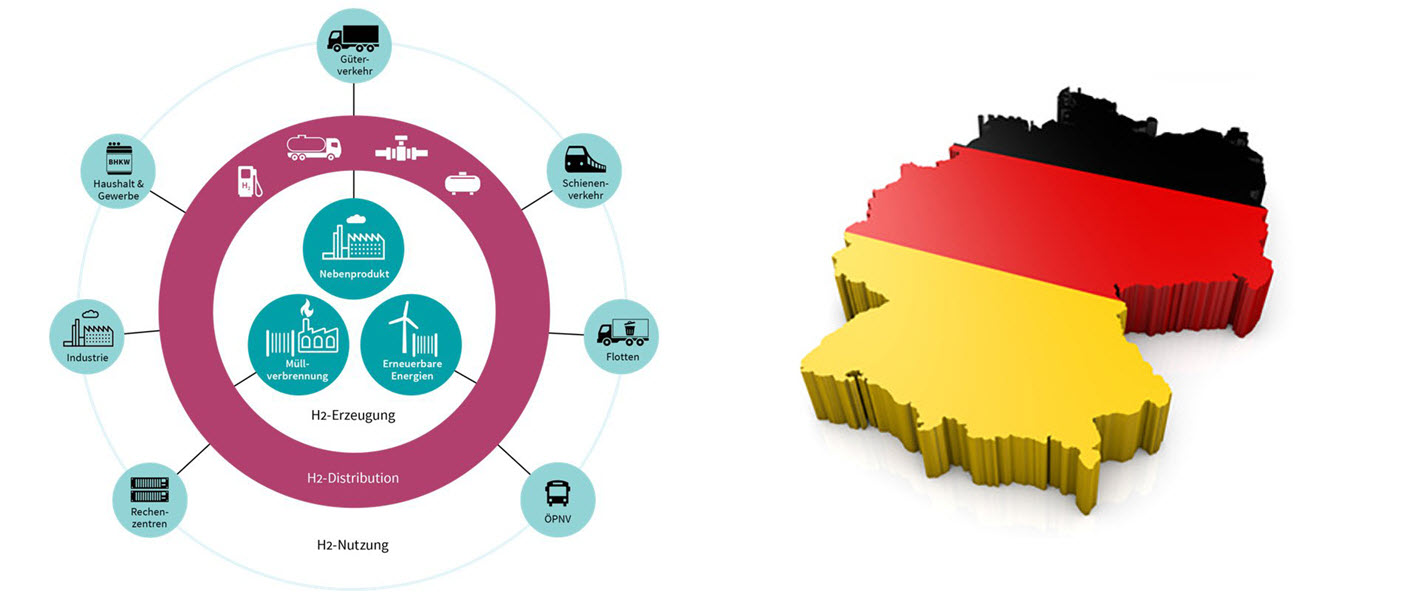
Überlandwerk Groß-Gerau GmbH, Hochschule RheinMain, Infraserv GmbH & Co. Höchst KG, Mainzer Stadtwerke AG and Kraftwerke Mainz-Wiesbaden AG form a project consortium with the support of the Hessian State Energy Agency (LEA).
In order to reduce the emission burden across all energy sectors, a systemic hydrogen economy is to be set up in the Rhine-Main metropolitan region. The systemic approach represents an important step in the implementation of the energy transition. Here the real laboratory can set standards for the national hydrogen economy and show a decisive step towards cross-sector decarbonisation. In the Rhein-Main, the production and use of green hydrogen can save about 5,000 tonnes of CO2 equivalent per year. It also creates long-term prospects for sustainable emission reduction. For example, by the year 2030, the aim is to supply about 1,000 fuel cell buses with hydrogen.

Dr. Karsten McGovern ( Hesse State Energy Agency LEA ) welcomes the project: “We are pleased that the hydrogen partners in the Rhine-Main region are pulling together and founding a project consortium to create a real laboratory for hydrogen technology Hydrogen for mobile and stationary use in the region shows that right now is the time to pool the skills that already exist in the region, so we can work together to develop a sustainable hydrogen economy that can also serve as a blueprint for other regions. ”
The concept of the laboratory plans is to build a hydrogen economy with almost 100% supply security. For this purpose, hydrogen production, distribution, storage and consumption in the region are planned, expanded and networked together. For hydrogen production in Frankfurt, Mainz and Groß-Gerau electrolysers with a total capacity of about 15 MW are operated. At the sites, hydrogen is generated using the grid and with renewable energies. The systems are connected with each other and can secure each other in case of production breakdowns.
To simplify the distribution of hydrogen, up to two central hydrogen distribution centers (H2 hubs) will be set up to give each hydrogen producer and customer access to the market. What such distribution centers can look like is first developed in an accompanying research. At the H2-Hubs, hydrogen should be able to be delivered and collected at any time via pipeline or trailer. This should allow market access in particular for small producers and customers and stimulate natural growth in the industry.
Jürgen Schmidt (Managing Director Überlandwerk Groß-Gerau GmbH ÜWG ) praises the cooperation: “The partners involved have outstanding expertise in hydrogen production, storage and distribution.” With the idea to build H2 hubs, we want to exploit the existing synergy potential. This will create a secure infrastructure for future hydrogen mobility projects, for example in the area of public transport, and we would like to thank the associated partners for their support in implementing the real laboratory and their hydrogen demand as the basis for continued economic operation after the end of the project. “
Read the most up to date Fuel Cell and Hydrogen Industry news at FuelCellsWorks




